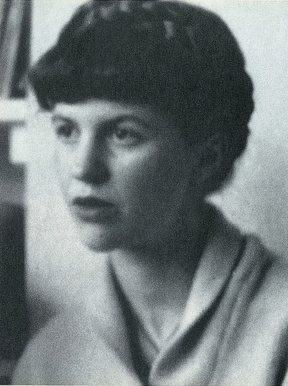On this date in 1932, Pulitzer Prize-winning poet Sylvia Plath was born in Boston to Otto and Aurelia Plath. A writer at the forefront of the 1950s movement known as “confessional poetry,” Plath’s published collections include The Colossus and Other Poems (1960), Ariel (1965) and The Collected Poems (1974), along with the semi-autobiographical and widely read novel The Bell Jar (1963), published shortly before her death at 30.
Ariel and The Collected Poems were published posthumously, the latter edited by Plath’s husband, the English poet Ted Hughes. The Collected Poems was awarded the Pulitzer Prize for Poetry in 1982. Plath’s poetry — often cited for its violence, precision, preoccupation with death and autobiographical nature — also explored the elemental forces of nature, religion, mental illness and the struggles surrounding femininity. The writer Joyce Carol Oates once described Plath as “one of the most celebrated and controversial of post-war poets writing in English.”
In The Bell Jar, Plath describes her father as “a bitter atheist.” He had been ostracized by his German family for his refusal to become a Lutheran minister. Likewise, Plath’s mother left the Catholic Church in college, citing its “repressive and controlling ideology.” (Sylvia Plath: A Biography, 1987.) Plath herself attended a Unitarian church, where she led the youth group. In college she often wrote about her struggles with religion. In a paper written for Introduction to the Study of Religion, she denied the existence of God and of an innate human consciousness.
After marrying Hughes in 1956, the couple moved to the U.S. and Smith taught at Smith College, her alma mater. Because she wanted more time to write, she left Smith after a year and took a job as a receptionist in the psychiatric unit of Massachusetts General Hospital. She sat in on evening creative writing seminars given by poet Robert Lowell. Her daughter Frieda was born in 1960, followed by a son, Nicholas, in 1962.
As far back as 1953 she had attempted suicide with pills. In 1962 she drove her car off the road into a river. That same year she discovered Hughes had been having an affair with Assia Wevill and they separated. Plath was found dead of carbon monoxide poisoning with her head in the oven on Feb. 11, 1963. She had sealed the rooms between her and her sleeping children with tape, towels and cloths. Nicholas Hughes hanged himself at age 47 in Fairbanks, Alaska, where he had earned a Ph.D. in biology and was working at the University of Alaska. (D. 1963)

